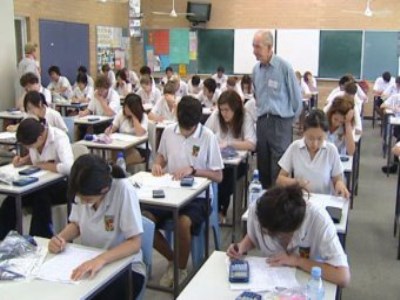
Reports show that despite substantial change to Australian education, there has been very little impact. But two experts say there is an answer.
Tom Bentley, principal adviser to the vice-chancellor, RMIT University and Glenn C. Savage, senior lecturer in education policy at the University of Melbourne’s Graduate School of Education, recently released a report aimed at addressing what they see as the most pressing issues in Australian education today.
In the paper – titled ‘Educating Australia: challenges for the decade ahead – Bentley and Savage refer to the lack of improvement concerning percentage of Australian students successfully completing Year 12 as well as State and Federal funding policies that “entrench sectoral division and elitism”.
Similarly, they point out that NAPLAN and My School have not led to improvements in literacy and numeracy, with 2016 data showing either stagnation or decline.
Reports show that the performance of Australian students in international assessments of maths, science and literacy skills has also steadily declined.
These unfortunate trends raise a worrying question: are Australia’s leaders replicating a failing system?
According to Bentley and Savage, the answer is a resounding ‘yes’.
“The national reforms since the mid-2000s were designed to address many of these persistent issues,” they write in a recent article published in The Conversation.
“Yet somehow, despite hard-fought political battles and reforms, and the daily efforts of system leaders, teachers, parents and students across the nation, we continue to replicate a system in which key indicators of impact and equity are stagnating or going backwards,” they said.
“The school funding impasse exemplifies this problem. The policy area is continuously bedevilled by the difficulties of achieving effective collaboration between governments and school sectors in our federal system.”
Bentley and Savage point out that this impasse remains hamstrung by “highly inequitable funding settlements” that have been established over many decades.
“These continue to entrench privilege in elite schools, while consistently failing to provide “needs-based” funding to schools and young people who need the most support,” they explain.
As a result, they say educational opportunities and outcomes are becoming further polarised.
“Young people from privileged backgrounds are accruing further advantage. Those from disadvantaged backgrounds are increasingly locked out of competitive education and job markets,” they said.
“The global growth of identity politics, fostering conflict over class, race, gender and migration, puts these trends in stark context.”
So what are we doing wrong?
In a paper called Educating Australia: Challenges for the Decade Ahead, Bentley and Savage tackle this question and seek to create a more innovative and productive interaction between ideas, evidence, policy and practice in education.
They argue that far greater attention and skill are needed to craft and build the institutional capabilities that render goals achievable, ensure fairness, and foster innovation and systemic learning in the public interest.
“Practical lessons arising from recent innovations in teacher education, professional learning, curriculum alignment and inter-school collaboration can help here,” they said.
“We also need to move beyond a fascination with divisions between governments in Australia’s federal system. We must focus instead on harnessing the potential of networks and collaborations across systems.”
It is for this reason that Bentley and Savage support “a coherent reform narrative” that genuinely reflects evidence about the nature of effective learning and teaching.
“Ultimately, the future success of Australian school-age education hinges on whether powerful ideas can be realised in practice, across tens of thousands of classrooms and communities,” they said.
“If we want reforms to be effective, their design must be grounded in wide-ranging dialogue about the nature of the problems and evidence about what will help to solve them.”
Related stories:


